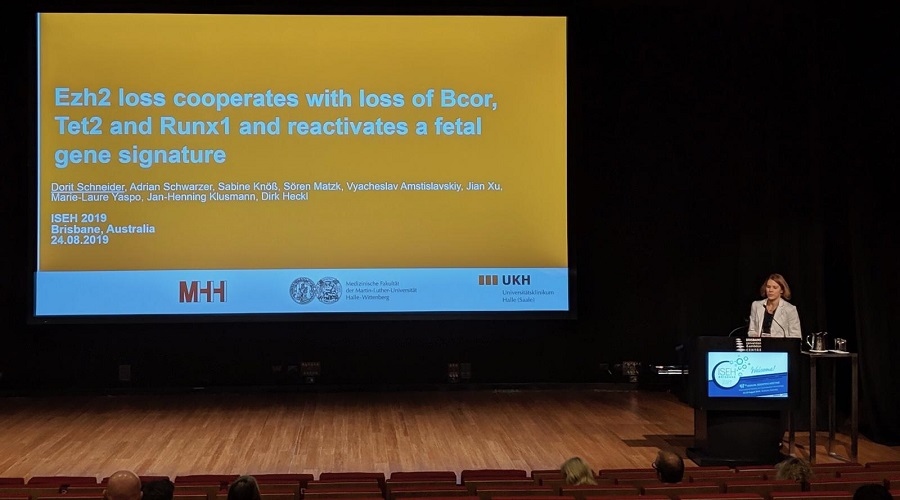
Dorit wins an Young Investigator Prize at ISEH 2019
The International Society for Experimental Hematology (ISEH) prides itself on its meetings, which aim to showcase the best and newest hematology research from around the world, and which typically feature an excellent speakers’ list. This year, the meeting program included a short talk from our lab’s Dorit Schneider, titled “Ezh2 loss cooperates with loss of Bcor, Tet2, and Runx1 during leukemogenesis and reactivates a fetal gene signature”. Not only did Dorit receive a travel award to present her data at the conference, she was also awarded an additional $500 Young Investigator Prize for her outstanding talk! Her abstract can be accessed online at the following link, under the “Abstracts > Short Talk Presentations” section: https://exphem-76s.elsevierdigitaledition.com/.
Our current understanding of leukemia development involves a multi-hit model where several genetic mutations cooperate to drive leukemogenesis. Dorit’s work centers around Ezh2, the enzymatic subunit of the polycomb repressive complex 2 (PRC2), which is frequently lost in adult cases of acute myeloid leukemias and myelodysplastic syndromes, and in pediatric Down syndrome myeloid leukemias and juvenile myelomonocytic leukemias. In order to interrogate the cooperating mutational network surrounding Ezh2 loss-driven AML, Dorit applied in vivo and in vitro multiplexed CRISPR-Cas9 screens and identified synergistic effects in combination with loss-of-function mutations in Bcor, Tet2, Runx1. In all combinations, Ezh2 loss significantly enhanced leukemia potency, and indeed appeared to induce an onco-fetal gene expression signature in leukemia cells. The identified dependency on onco-fetal genes could potentially be exploited for future AML therapies.